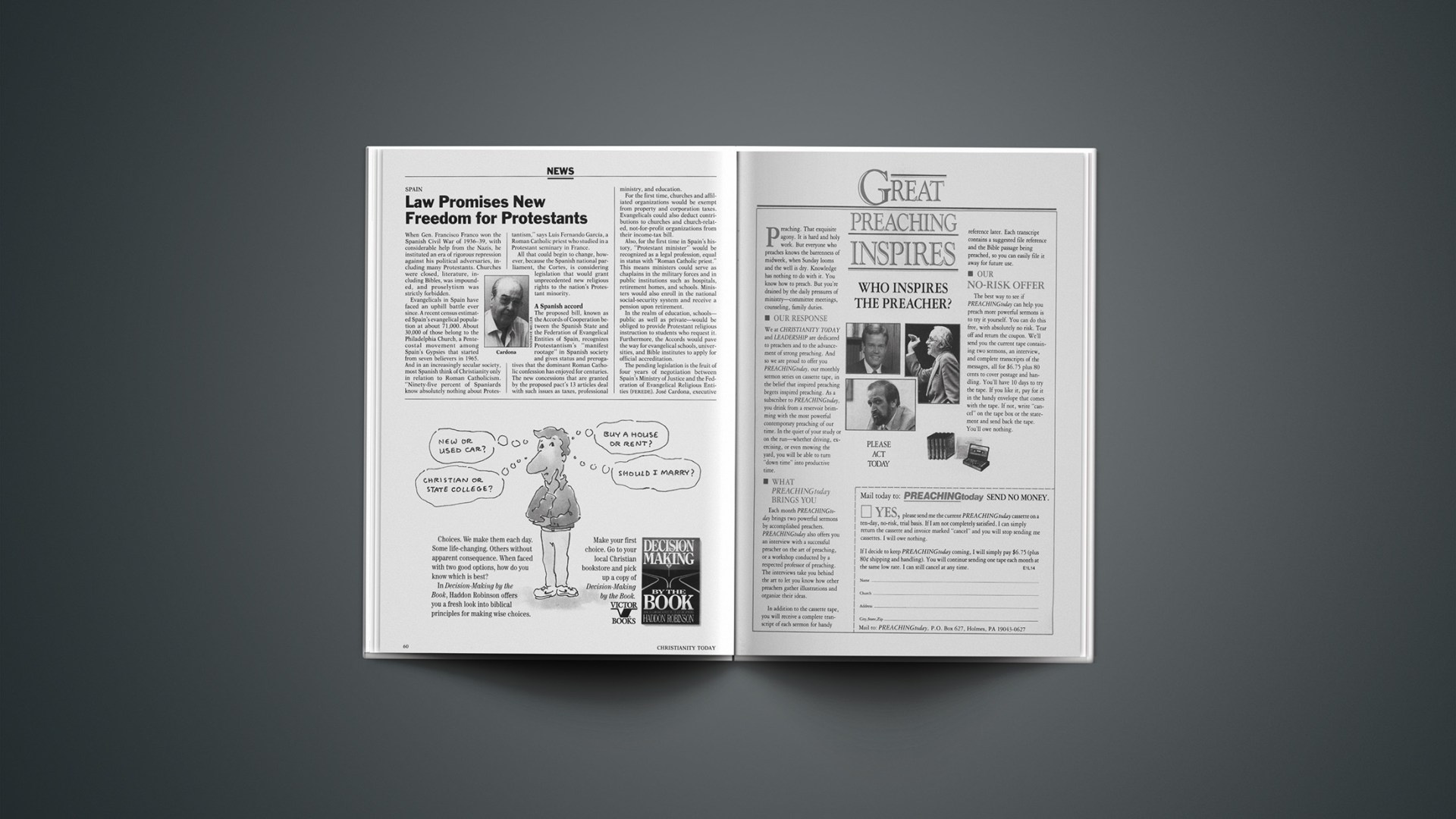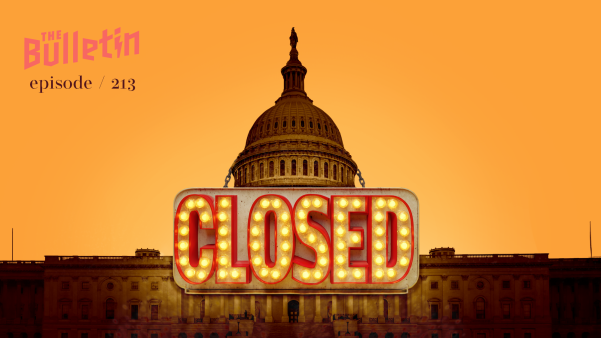When Gen. Francisco Franco won the Spanish Civil War of 1936–39, with considerable help from the Nazis, he instituted an era of rigorous repression against his political adversaries, including many Protestants. Churches were closed, literature, including Bibles, was impounded, and proselytism was strictly forbidden.
Evangelicals in Spain have faced an uphill battle ever since. A recent census estimated Spain’s evangelical population at about 71,000. About 30,000 of those belong to the Philadelphia Church, a Pentecostal movement among Spain’s Gypsies that started from seven believers in 1965. And in an increasingly secular society, most Spanish think of Christianity only in relation to Roman Catholicism. “Ninety-five percent of Spaniards know absolutely nothing about Protestantism,” says Luis Fernando Garda, a Roman Catholic priest who studied in a Protestant seminary in France.
All that could begin to change, however, because the Spanish national parliament, the Cortes, is considering legislation that would grant unprecedented new religious rights to the nation’s Protestant minority.
A Spanish Accord
The proposed bill, known as the Accords of Cooperation between the Spanish State and the Federation of Evangelical Entities of Spain, recognizes Protestantism’s “manifest rootage” in Spanish society and gives status and prerogatives that the dominant Roman Catholic confession has enjoyed for centuries. The new concessions that are granted by the proposed pact’s 13 articles deal with such issues as taxes, professional ministry, and education.
For the first time, churches and affiliated organizations would be exempt from property and corporation taxes. Evangelicals could also deduct contributions to churches and church-related, not-for-profit organizations from their income-tax bill.
Also, for the first time in Spain’s history, “Protestant minister” would be recognized as a legal profession, equal in status with “Roman Catholic priest.” This means ministers could serve as chaplains in the military forces and in public institutions such as hospitals, retirement homes, and schools. Ministers would also enroll in the national social-security system and receive a pension upon retirement.
In the realm of education, schools—public as well as private—would be obliged to provide Protestant religious instruction to students who request it. Furthermore, the Accords would pave the way for evangelical schools, universities, and Bible institutes to apply for official accreditation.
The pending legislation is the fruit of four years of negotiation between Spain’s Ministry of Justice and the Federation of Evangelical Religious Entities (FEREDE). José Cardona, executive secretary of FEREDE, expected the bill to pass the Cortes quickly, possibly in time for Reformation Day, October 31.
“The agreements have been approved by all the proper legal channels,” Cardona says. “Everything has been resolved from the technical point of view.”
“There is a lot of interest on the part of the state to complete this [legislation] rapidly in order to do away with existing religious discrimination,” adds Juan Lopez, administrative assistant at FEREDE’s headquarters in Madrid. “Religious liberty in Spain is perhaps the broadest that exists anywhere nowadays, after that of the United States. It is very, very broad.”
One catch in the newly proposed pact is that it grants the respective legal privileges only to those evangelical entities who join FEREDE.
“Obviously, there is now a small problem,” Cardona admits. “A few, small churches exist that, for reasons of principle, cannot become associated with others. They remain outside the association and, for that reason, will not have the benefits of the Accords.”
Cardona estimates that 90 percent of the evangelical bodies known to exist in Spain have already become members of FEREDE. He says it is unlikely that any Protestant group that seeks membership in the FEREDE will be excluded. In spite of the political progress, promoters of the Accords entertain no illusions about their immediate impact upon the religious complexion of Spain’s traditional, Roman Catholic society. “The Catholic church still carries a lot of weight in Spain,” Lopez points out. “You cannot say that, overnight, Spain has ceased being Catholic. The average citizen still thinks that to be Protestant is to be a second-class citizen.”
By Dave Miller, News Network International, in Madrid.










